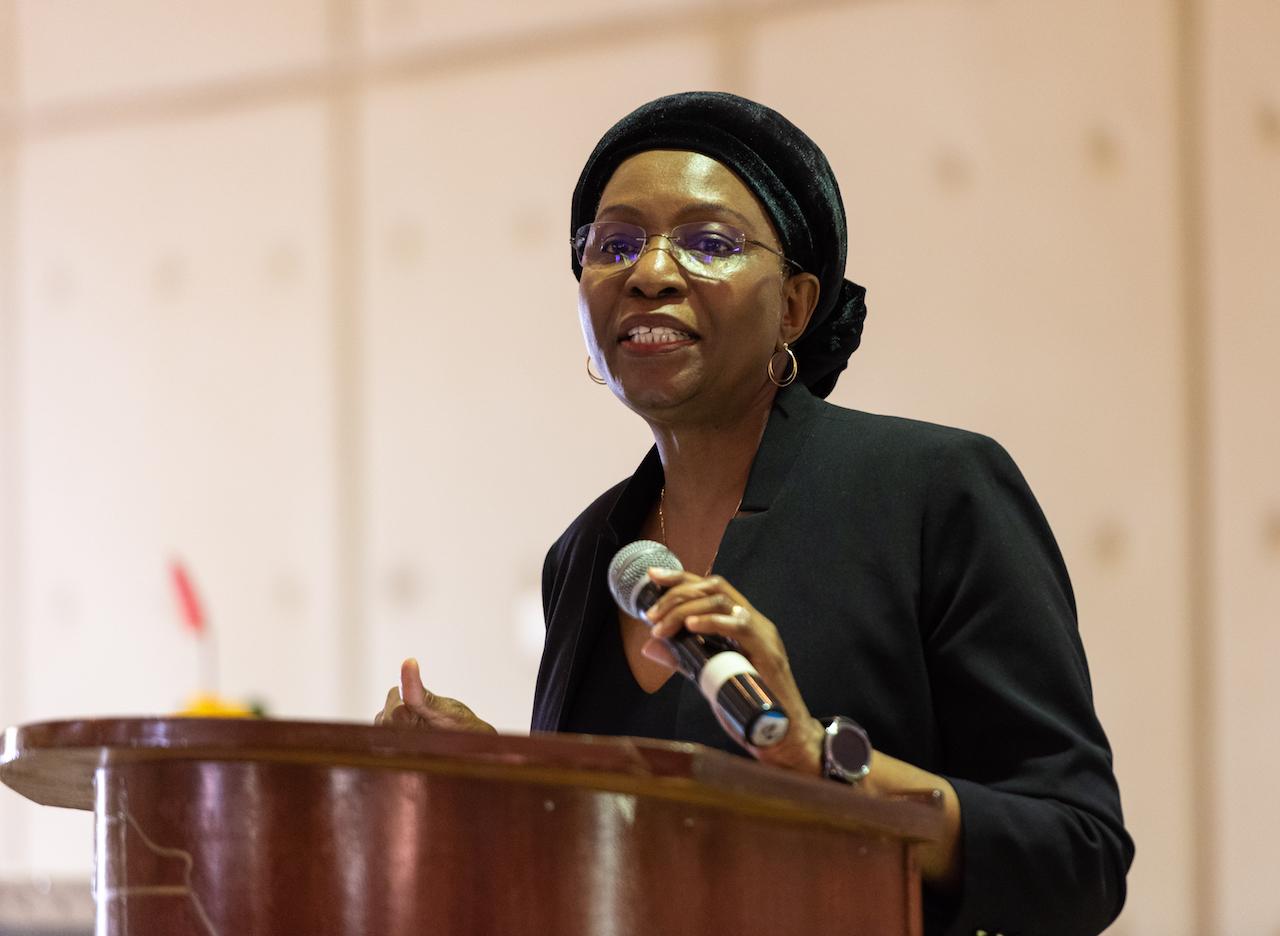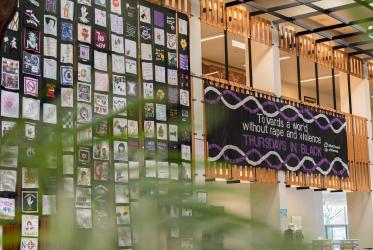Churches across southern Africa are publicly saying #EnoughIsEnough,” with many denominations and congregations continuing to issue strong statements, arrange special prayer events, and speak out against rising levels of violence.
Both the Dutch Reformed Church and the Uniting Presbyterian Church in Southern Africa (UPCSA) have been discussing gender justice and how to keep the momentum going on the unprecedented public demand for change.
In its synod, the Dutch Reformed Church adopted a new policy on sexual abuse and misconduct, and also publicly strengthened its commitment to gender justice. The new policy, the result of conversations over many years about the way in which women are sometimes treated in the church, describes in detail which acts could be seen as sexual abuse or misconduct.
Sharing concerns
World Council of Churches (WCC) deputy general secretary Dr Isabel Apawo Phiri recently visited the UPCSA to share news from the WCC and to listen to the church’s concerns and accomplishments.
Phiri updated the church members on the WCC Green Village; the Pilgrimage of Justice and Peace 2019 theme on racism, discrimination, ethnicity and xenophobia; the upcoming March 2020 WCC Central Committee meeting; and the 2021 11th WCC Assembly in Karlsruhe, Germany.
The UPCSA shared concerns about shrinking membership and lack of youth interest in church membership. “There is also concern about the increase of violence against women and children and xenophobic attacks,” said Phiri.
The UPCSA shared about their participation in the annual Pilgrimage of Justice and Peace event organised by the Lesotho Evangelical Church in Southern Africa in 2018. The UPCSA members who participated in this pilgrimage are looking forward to doing the same in 2019. The Lesotho Evangelical Church in Southern Africa will have its 2019 pilgrimage 22-26 October. They are expecting 200 people to walk from Lesotho to South Africa, stopping in towns and villages en route to share messages related to justice and peace.
In addition, the UPCSA is exploring with other churches methods of church fundraising that do not depend on congregational assessments. Uniting Presbyterians would also like to continue ecumenical training of ministers and lay leaders who can work in rural areas.
Statements against violence
The UPCSA issued two statements, one on violence against women and children and the other on xenophobic attacks. “There was appreciation on the WCC’s commitment to eliminate racism in all forms, as this still remains a major issue in southern Africa,” said Phiri.
In a “Statement on Femicide, Killing of Children, and Violence Against Women and Children,” the UPCSA acknowledged that, by doing nothing, men are complicit in perpetuating violence against women and children. The church pledged "recommitting ourselves to the ideals of the reign of God and the constitutional values of human dignity, equality and freedom.”
South Africa alone had 52,420 sexual offences reported in the last financial year - and many unreported. As dialogue continue in South Africa, many people have committed and recommitted to the #ThursdaysinBlack campaign for a world free from rape and violence.
The UPCSA also issued a “Statement on the Recent Xenophobic Violence Against Fellow Africans.” The statement noted the horrific wave of xenophobic violence, attacks and murders of fellow Africans, migrant workers and refugees occurring in southern Africa. “We urge the governments, especially South Africa, to demonstrate leadership by bringing to an end this murderous cycle of violence and promote the observance of human rights and adherence to the standards and norms as enshrined in international human rights instruments,” the statement reads. “We call for the enforcement of the human-rights-based legal framework in order to prevent and redress human rights violations against migrants and for the promotion of training on migrants’ rights and against xenophobia.”
The statement calls on governments to take deliberate and practical steps to stem the tide of carnage. “We declare that our churches and schools are safe places for the vulnerable groups,” the statement reads. “We recommit ourselves to the oneness of human life across the continent of Africa.”
Gender justice takes forefront
In a September statement, women theologians in South Africa expressed their horror about the continuing wave of violence against women.
“We call on faith communities and the society in general to no longer keep quiet about violence against women and children and to stop silencing those voices that do speak about it,” reads the statement. “We call on the leadership of faith community to decisively give attention to ways in which the way the Bible is read that maintain violence against women and children.”
The statement notes that a power imbalance easily leads to abuse of power and violence. “God is represented by male leadership in the church,” reads the text. “In a patriarchal world, woman aren't seen and treated as humans with the diversity of God-given gifts, but reduced to body.”
Decision-making powers are often claimed by men, continues the statement. “As women theologians and pastors, we express our gratitude to men who treat all fellow humans, including women, equally with dignity and who create a safe haven for women and children.”
“When you strike the women, you strike a rock” (WCC feature story 18 September 2019)









